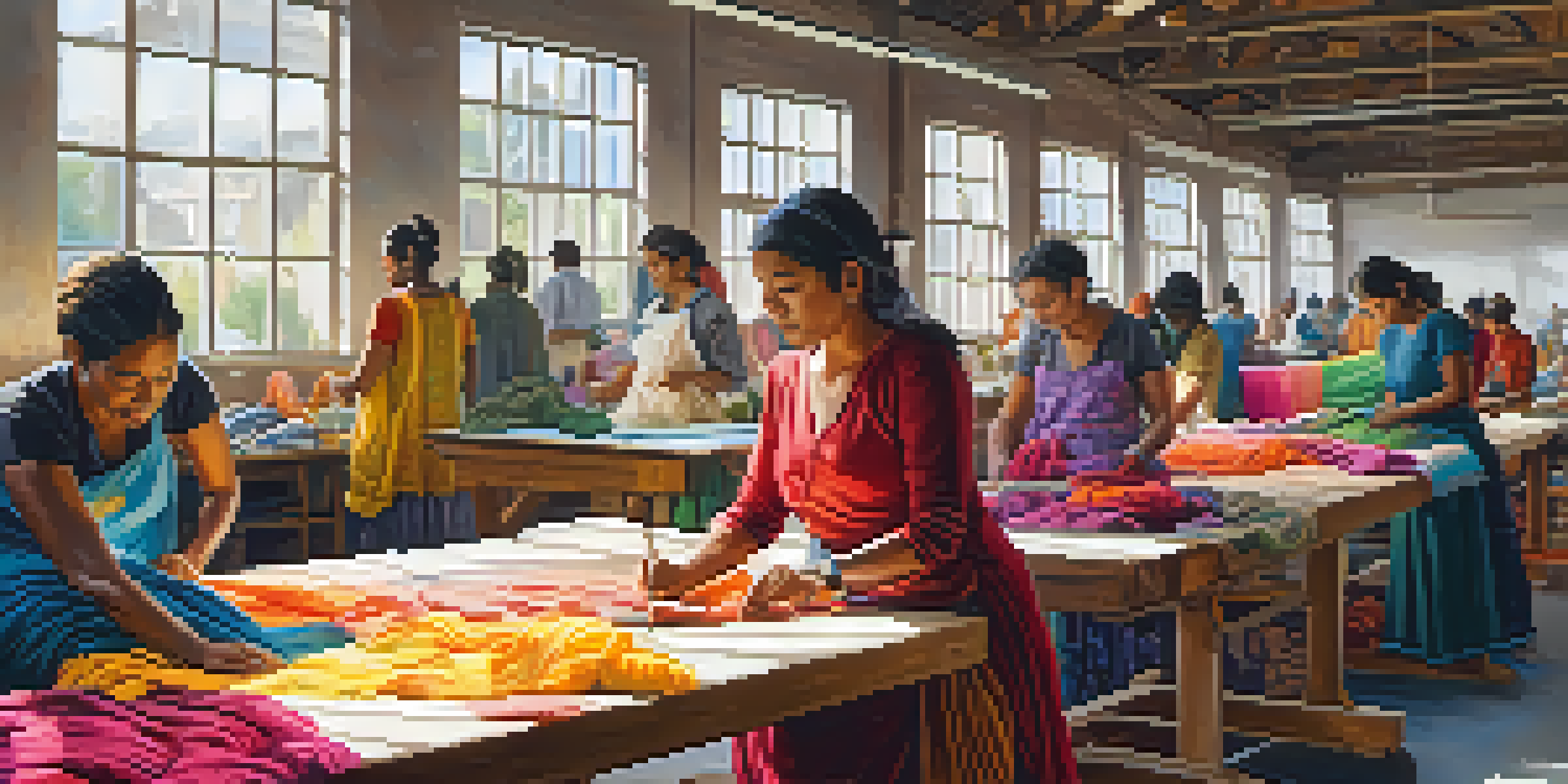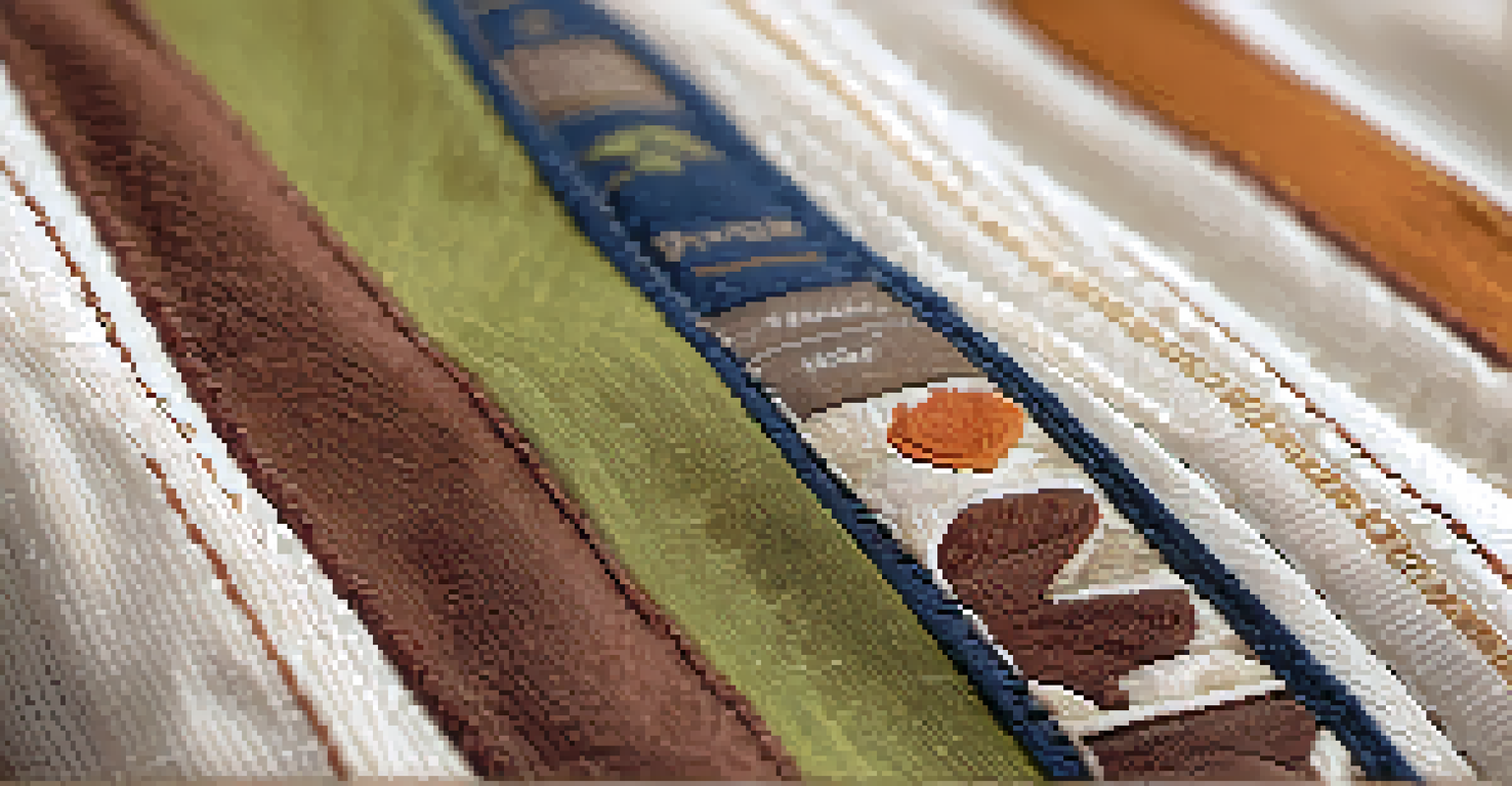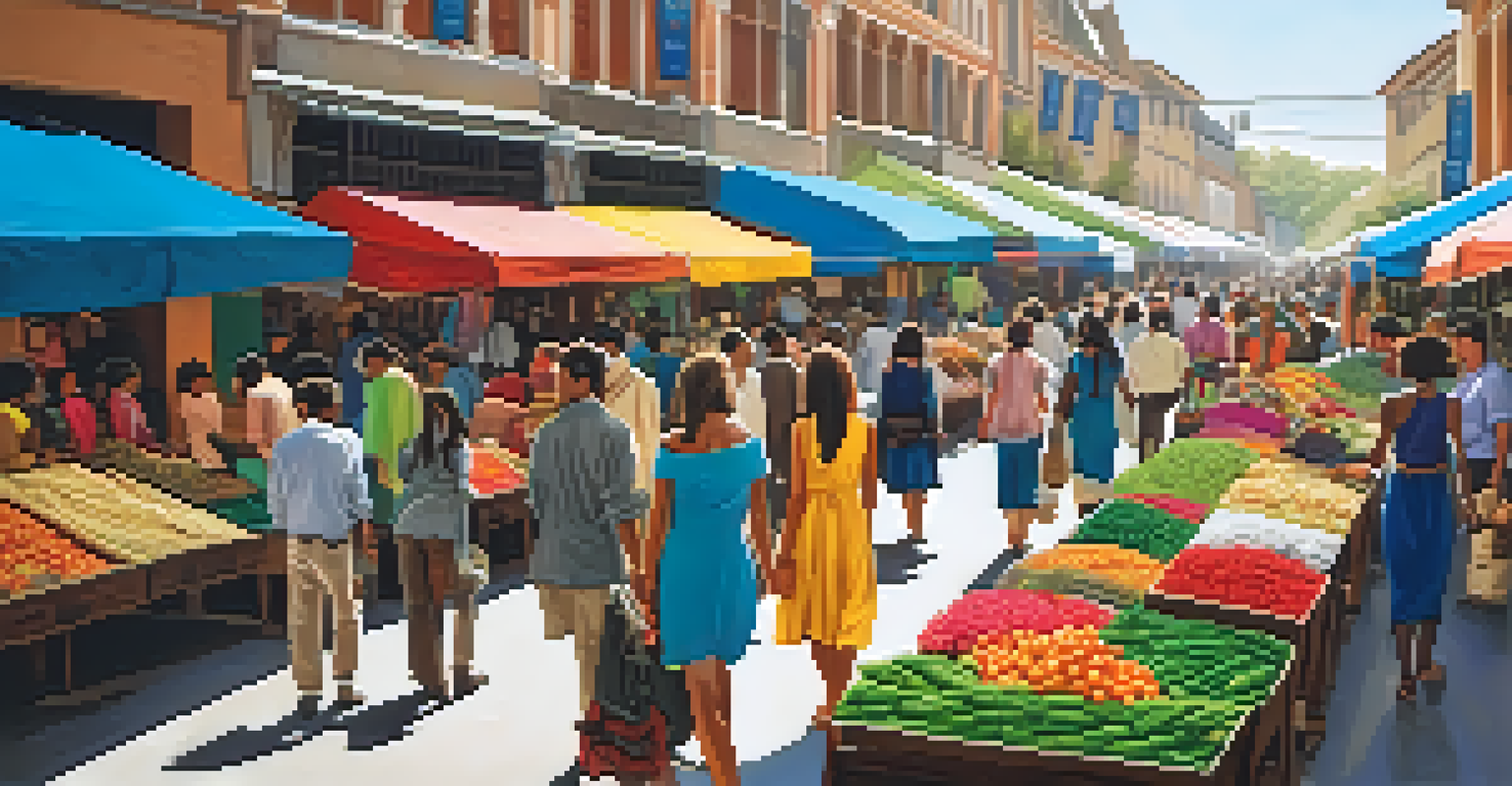Fair Trade in Fashion: How It Empowers Workers Globally

Understanding Fair Trade and Its Importance in Fashion
Fair Trade is a movement that ensures producers receive fair wages and safe working conditions. In the fashion industry, this means that workers who create our clothes are treated with dignity and respect. Rather than being exploited, these individuals can support their families and communities, fostering a more sustainable economic environment.
The true cost of fashion is not measured in money, but in the human lives affected by the industry.
The importance of Fair Trade in fashion extends beyond just the individual worker. It promotes ethical practices that challenge the fast fashion model, which often prioritizes profit over people. By choosing Fair Trade brands, consumers can contribute to a system that values human rights and environmental sustainability.
Ultimately, Fair Trade is about creating a balance in the fashion supply chain. It empowers workers, uplifts communities, and encourages responsible consumption, aligning with the values many shoppers hold dear today.
The Impact of Fair Trade on Workers' Lives
Fair Trade practices significantly improve the lives of garment workers. By providing fair wages, workers can afford basic necessities like food, education, and healthcare. This financial stability not only benefits them but also positively impacts their families and communities.

Moreover, Fair Trade initiatives often include skill development programs. These programs empower workers with new skills, increasing their employability and enhancing their quality of life. It's not just about the money; it's about building a brighter future through education and opportunity.
Fair Trade Empowers Workers
Fair Trade practices ensure that garment workers receive fair wages and safe working conditions, promoting dignity and respect.
For many, Fair Trade means a shift from exploitation to empowerment. Workers can take pride in their craft, knowing that their labor is valued and contributes to a larger cause of social justice and equality.
How Fair Trade Certification Works
Fair Trade certification is a rigorous process that ensures companies adhere to strict social, economic, and environmental standards. To be certified, brands must demonstrate fair labor practices, transparency in their supply chain, and adherence to environmental guidelines. This certification acts as a guarantee for consumers seeking ethical products.
Fair Trade is not a charity, it’s a way of doing business that values people and the planet.
The certification process involves regular audits and assessments by independent organizations. These checks verify that brands are genuinely committed to Fair Trade principles rather than simply using the label for marketing purposes. It's a way to hold companies accountable and ensure that workers truly benefit.
Understanding how certification works can empower consumers to make informed choices. When you see the Fair Trade logo, you can feel confident that your purchase supports ethical practices and contributes to a more equitable world.
Consumer Choices: Supporting Fair Trade Brands
As consumers, we hold immense power in shaping the fashion industry. Choosing to support Fair Trade brands sends a clear message that ethical practices matter. When more people opt for these products, it encourages other companies to adopt similar standards.
There are many Fair Trade fashion brands to explore, from clothing to accessories. By consciously selecting these brands, you’re not just buying a product; you’re investing in a movement that champions worker rights and sustainable practices.
Ethical Choices Shape Fashion
By choosing to support Fair Trade brands, consumers can influence the fashion industry towards more ethical and sustainable practices.
Every purchase counts. When we prioritize Fair Trade, we contribute to a collective effort to change the landscape of fashion, ensuring that workers worldwide are empowered and treated fairly.
The Environmental Benefits of Fair Trade Fashion
Fair Trade is not only about social justice; it also promotes environmental sustainability. Fair Trade practices encourage the use of organic materials and sustainable farming methods, which reduce harmful chemicals in the environment. This approach helps preserve ecosystems and promotes biodiversity.
Additionally, Fair Trade brands often prioritize local production, which decreases carbon footprints associated with transportation. By sourcing materials closer to home, these companies contribute to a more sustainable supply chain, aligning with the growing consumer demand for eco-friendly products.
In essence, choosing Fair Trade fashion is a way to support both people and the planet. It’s a holistic approach that addresses social and environmental issues simultaneously.
Challenges Facing Fair Trade in the Fashion Industry
Despite its many benefits, the Fair Trade movement in fashion faces significant challenges. One of the biggest hurdles is the prevalence of fast fashion, which thrives on cheap labor and rapid production. This model undermines Fair Trade efforts, making it difficult for ethical brands to compete.
Additionally, consumer awareness is still a barrier. Many shoppers may not fully understand what Fair Trade means or why it’s important. This lack of knowledge can lead to missed opportunities for supporting ethical brands that prioritize worker welfare.
Environmental Sustainability Matters
Fair Trade encourages the use of organic materials and local production, which benefits both the environment and communities.
Addressing these challenges requires collective action from consumers, brands, and advocates. By raising awareness and choosing to support Fair Trade, we can create a stronger demand for ethical practices in the fashion industry.
The Future of Fair Trade in Fashion
The future of Fair Trade in fashion looks promising, especially with a growing number of consumers prioritizing ethics in their purchasing decisions. As awareness increases, more brands are likely to embrace Fair Trade principles, creating a ripple effect throughout the industry.
Innovations in sustainable materials and production methods also play a crucial role in shaping this future. As technology advances, ethical practices can become more accessible, allowing a broader range of brands to participate in the Fair Trade movement.

Ultimately, the future hinges on our collective commitment to making thoughtful choices. By supporting Fair Trade fashion today, we contribute to a more just and sustainable world for tomorrow.
Get Involved: Advocating for Fair Trade Fashion
Getting involved in the Fair Trade movement is easier than you may think! Start by educating yourself about the brands you support and seeking out Fair Trade options. Engage with your community by sharing information about the importance of ethical fashion and encouraging others to make conscious choices.
You can also support Fair Trade organizations that work to empower workers and promote sustainable practices. Volunteering your time or donating to these organizations can make a significant impact and help spread the message further.
Together, we can advocate for a fashion industry that values fairness, sustainability, and worker empowerment. Every action counts, and your voice can be a powerful tool for change.